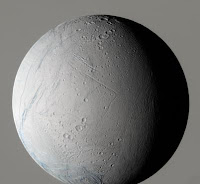
Oh, great. Like we needed this, on top of Iran's well-understood nuclear ambitions. You just gotta wonder what these people were thinking when they made this deal!
On the bright side, without the revolution in the Ukraine, I seriously doubt we'd have gotten this admission (though one could hope our intelligence services would have ferreted it out).
The AFP's complete story:
LONDON (AFP) - Ukraine admitted that it had exported nuclear-capable cruise missiles to Iran (news - web sites) and China, amid tense diplomatic debate over Tehran's alleged quest for nuclear weaponry.
Eighteen Soviet-era X-55 cruise missiles were exported in 2001 -- 12 to Iran and six to China -- Svyatoslav Piskun, Ukraine's prosecutor general, told the respected London-based Financial Times daily.
Piskun said the missiles were not exported with the nuclear warheads that they were designed to carry.
Nonetheless, both Japan and the United States were worried about what appeared to be a significant leak of military technology, the newspaper reported.
The X-55, an air-launched missile also known as the Kh-55 and AS-15 and first introduced in 1976, has a range of 3,500 kilometers (2,175 miles), which would give China -- or North Korea (news - web sites), if it obtained the missile -- easy access to Japan, while Iran could hit its main regional foe, Israel.
Last month the Ukrainian government opened a criminal inquiry, at the request of Japan, into the illegal sale of 18 missiles by the Ukrspetsexport arms group to unspecified states via Russia.
Reports about the missile sales going to Iran emerged earlier this month.
But Piskun's statement was the first acknowledgment from the Kiev government, and is likely to heighten suspicions about Tehran's nuclear program.
The Islamic republic insists its program is aimed at peaceful civilian use but Washington claims it is designed to produce nuclear arms.
Although the X-55 is designed to carry a nuclear warhead, it can also be loaded with conventional weaponry and would not be Iran's ideal nuclear missile, Doug Richardson, editor of Jane's Missiles and Rockets Magazine, said.
Richardson told AFP the Tehran regime's own Shahab ballistic missile was better suited since it was faster than a cruise missile.
"If they're going to nuclearize a weapon, they're much more likely to do so with one of their ballistic missiles. A ballistic missile, simply because of its sheer speed, is more difficult to defend against than a cruise missile," he said, calling the Shahab "almost unstoppable".
A cruise missile, on the other hand, travels at subsonic speed comparable to that of an airplane, he added.
However, John Eldridge, editor of Jane's Nuclear, Biological and Chemical Defence, told AFP the report was a fresh sign that Iran was seeking "to beef up its offensive capability in the region".
"It's not a piece of news that hints of great stability in the region," he said.
If Iran is seeking to create an offensive nuclear capability, it could either buy complete "off-the-shelf" solutions or acquire both materials such as the X-55 and expertise to create it themselves, Eldridge said.
Currently, "both options appear to be being pursued by the Tehran government", he added.
Ukraine had a massive weapons arsenal after the fall of the Soviet Union, but it returned its nuclear warheads to Russia or destroyed them under a US-funded disarmament program.
Its remaining weaponry remains, however, a source of major concern in the West, fueled by several high-profile cases of arms trafficking including radar technology to Saddam Hussein (news - web sites)'s regime in Iraq (news - web sites).
two anti-aircraft missiles and a launch system were reported stolen last month from a Ukrainian naval base in the Crimean peninsula, while Turkey reported seizing a Ukrainian radio-controlled missile and missile heads en route to Egypt last June.

